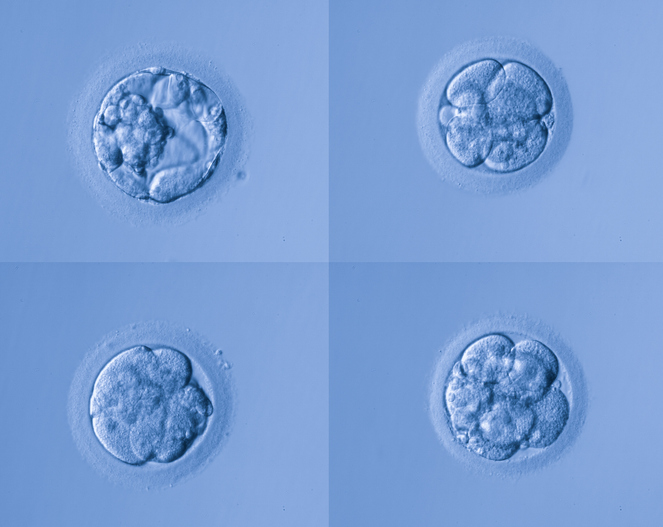

Becoming an egg donor can be a meaningful and empowering experience, but unfortunately, not everyone who wants to become an egg donor will qualify. That’s because the process is highly regulated to ensure the health and safety of the donor, the success of the donation cycle, and the long-term well-being of any future children. Medical organizations and regulatory agencies set clear guidelines around who can donate based on age, health history, genetic background, and more.
If you’re thinking about egg donation—especially through Cofertility’s Split program, where you can freeze your eggs for free when you donate half to a family who can’t otherwise conceive—it’s helpful to understand what might stand in the way.
Some disqualifications are set in stone, like those enforced by the FDA. Others are recommended by professional groups like the American Society for Reproductive Medicine (ASRM) or based on clinic-specific rules. Here, we’ll walk through the most common reasons someone might be disqualified from egg donation, what they mean, and what your options might be if you don’t meet certain criteria right now.
Age
Unfortunately, most doctors will turn away an egg donor over age 34. The reason for this age limitation is because data shows that, on average, those over 34 tend not to respond to fertility medication as well and therefore may not produce enough eggs to donate. Also, research shows that, unfortunately, egg quality declines with age.
If you are over 34, you are still eligible to participate in our Keep program, where you can freeze your eggs and keep 100% of them for yourself. Also, if you are over 34 and donating for a family member or friend, a doctor may approve you for egg donation on a case-by-case basis.
Per ASRM guidelines, we also do not accept Split members who are under 21. If you’re younger than this and you’d like to participate, please reach out and we’ll get back in touch after you turn 21.
General health
As a preliminary step in the process, we will review several health-related factors before you can be approved for egg donation. Any issues that would make the egg freezing and donation process risky for your health is a disqualification.
A few health-related factors can disqualify someone from egg donation, including certain heart problems, chronic diseases, HIV, hepatitis B or C, and certain transmissible diseases.
Also, and this sounds random, but if you lived in Europe for over five years, or in England for over three months between 1980-1996, the FDA has determined that your risk of mad cow disease would also disqualify you if you’re not willing to be in a disclosed donation (i.e., sharing your identity with intended parents). If you are willing to disclose, you can donate with a waiver from the FDA waiver.
These requirements help protect your health and ensure a safe donation process for all involved.
Reproductive and sexual health
For starters, you’ll need to have two ovaries, and you cannot have taken a Depo Provera shot within the past 6 months, because it can interfere with the hormonal medications you’ll need to take during egg freezing.
Due to these same hormonal medications, you also cannot be currently pregnant or breastfeeding. You’re welcome to apply if you expect to stop breastfeeding within the next 6 months. If you plan to continue breastfeeding for 6+ months, we’d love for you to re-apply when the timing is right.
As part of the process, you will get your hormones tested. If your hormone levels are outside of recommended limits or the doctor has concerns about your ability to produce sufficient eggs, you would not qualify (more on AMH below).
You will also not qualify for egg donation if you’ve had a sexually transmitted disease within the past 12 months (but you can apply after 12 months of treatment). You also will be disqualified if you’ve been refused as a blood donor due to other infectious diseases or medical conditions. Same goes if you’ve ever had a blood transfusion.
Anti-Mullerian hormone (ovarian reserve) levels
As you likely know, women have a set egg quantity present at birth. Your eggs mature in ovarian follicles, and each of these follicles produces the anti-Mullerian hormone (AMH). Over time, this hormone level drops, and eventually, women naturally develop what's known as a diminished ovarian reserve (DOR).
Your AMH level can help predict how well medication may work to stimulate your ovaries to produce eggs. It also tells doctors what dosage of drugs may be needed to do so. The higher the AMH level, the more eggs generally produced.
At Cofertility, aligned with typical clinic standards for egg donation, if your AMH < 2, you are ineligible for our Split program. We only accept Split Members with these higher AMH levels as it helps mitigate the possibility of retrieving very few eggs for your own use, one we split the mature eggs retrieved in half. If your AMH is <2, we will share more information with you about our Keep program, which you are more likely to be eligible for.
Read more in AMH 101: Everything You Need to Know
BMI
Body mass index, or BMI, is one of the criteria used during egg donor screening—and we understand that this can be a sensitive and sometimes controversial topic. Most clinics require a BMI between 18 and 30 to be eligible for egg donation, and we follow these clinic requirements at Cofertility.
This range is largely based on concerns about procedural risk and egg retrieval outcomes. People with a higher BMI may face increased risks during anesthesia or complications related to egg retrieval. On the flip side, very low BMI can raise the risk of ovarian hyperstimulation syndrome (OHSS) and may affect hormone levels or cycle response.
That said, BMI alone is not a full picture of someone’s health. It doesn’t account for muscle mass, body composition, bone density, or ethnic and genetic differences. For athletes, for example, BMI can be especially misleading. And since BMI calculations were originally based on white, male body types, their use across populations can perpetuate racial inequities—especially among women of color, who are already disproportionately affected by both infertility and barriers to care.
If your BMI is currently outside this range, you’re welcome to reapply in the future. And regardless of your eligibility, we’re here to support you in exploring all your fertility options.
Read more about BMI and egg freezing here.
Medical and family history
Because donor-conceived children share your genetics, your personal and family medical history matters. If you cannot confirm your biological family’s health history, that’s unfortunately considered a disqualifier.
Though not an exhaustive list of every condition that may disqualify a member, when reviewing your personal and family medical history, doctors look for personal and/or family history of:
- Cancer
- Heart/blood disease
- Neurological diseases
- Mental health disorders
- Thyroid disorders
- Genetic disease
- Fertility issues
- Reproductive disease
- Autoimmune disease
- Respiratory disease
- Metabolic disease
- Gastrointestinal disease
- Kidney disease
- Birth defects
We review your personal and family medical history as a whole with our medical advisors. When reviewing, we consider the severity of the disease/conditions, number of relatives with the disease/condition, age of diagnosis, as well as that relative’s relation to you.
Psychological screening
Mental and emotional wellbeing are also part of the screening process. You’ll complete a psychological evaluation, and while a history of manageable anxiety or depression doesn’t automatically disqualify you, more severe conditions might. The goals here are both to reduce the chance for donor-conceived people to inherit health conditions, as well as to ensure the wellbeing of donors going through the process.
Per ASRM guidance, agencies - including our own - will, however, exclude those with a personal or first-degree (parents, siblings, offspring) family history of:
- Bipolar disorder
- Borderline personality disorder
- Alcoholism or drug abuse
- Suicide attempts
- Mood disorder
- PMDD
- Schizophrenia
- Schizoaffective disorder
- Major depressive disorder
We will also take into account the donor’s personal and family history of formal diagnoses of any other mental health conditions and the number and types of medications used to manage those mental health disorders.
Learn more in What Happens During Psychological Screening to be an Egg Donor
Genetic screening
As part of the evaluation process, you will also be required to do a genetic carrier screening via blood test or saliva sample. This helps increase the chance that embryos resulting from your eggs lead to a viable pregnancy and that a child won't be born with severe disease.
But even for serious diseases, not all disease-related genes are deal-breakers. For example, if your tests reveal that you have a copy of a gene that can lead to cystic fibrosis, spinal muscular atrophy, or thalassemia, this may disqualify you depending on the clinic. Even if two copies of the gene are needed in order for the condition to occur, clinics each handle this differently.
In line with ASRM guidance, in most cases where carrying one copy of a particular gene won't impact the child themselves, you can still donate.
State-specific qualifications
Some states do maintain their own specific requirements for women who are donating eggs. These requirements will extend to those in our Split program and would be determined by the location of the clinic at which you would be conducting the retrieval.
Any state-specific egg donation qualifications will be evaluated at the time of your physical examination.
Additional disqualifying factors
In addition to the above, there are several factors that, unfortunately, would disqualify you from our Split program (and in many cases, per ASRM and/or FDA guidance, egg donation in general). These include if you:
- Have served jail time for more than two days
- Have undergone body piercing and/or tattooing within the past twelve months in which sterile procedures may not have been used
- Regular nicotine use, including vaping, since the ASRM has confirmed an association between smoking and decreased fertility
- Have the highest education level of GED
- Have Indigenous American ancestry and are registered with a tribe—this is due to the Indian Welfare Act. If you are able to receive an official letter with written permission from your tribe, you may be approved.
The net net
We know this sounds like a lot, but these disqualifiers are in place to respect the health and wellbeing of our donors,intended parents, and donor-conceived children. If you have any questions about Split—including the factors outlined here—don’t hesitate to connect with us.
You have tons to offer, and whether you qualify as an egg donor is in no way reflective of your value. The most important thing is that you feel one hundred percent comfortable in any decision you make. This is a big one, and we’re with you every step of the way.
Click here to learn more about Cofertility's programs and see if you qualify.










